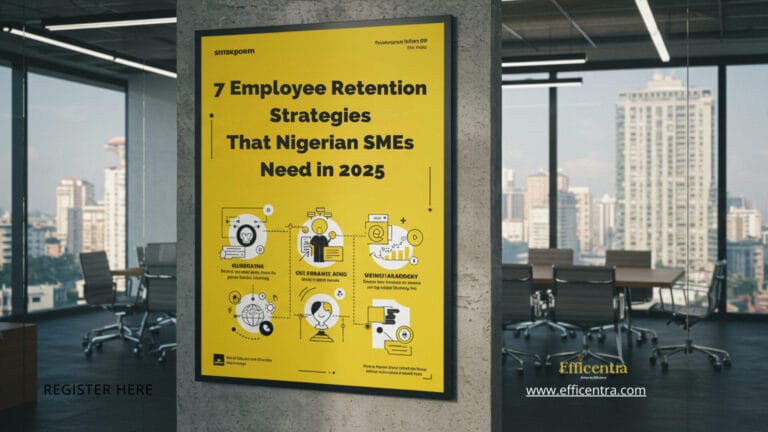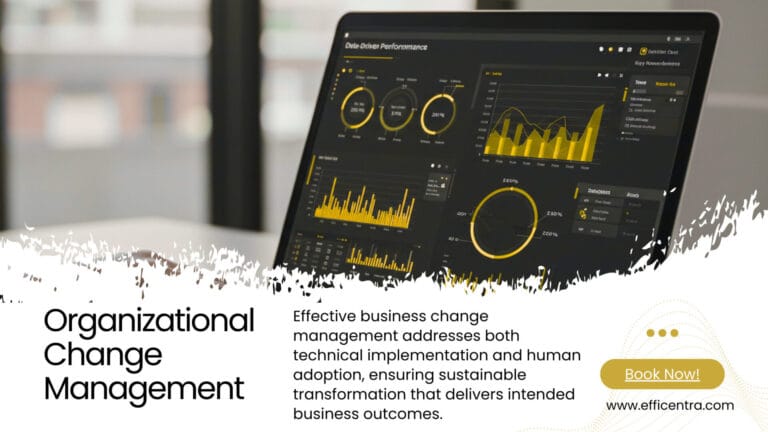SME Talent Acquisition Nigeria: Strategic Recruitment Framework for 2025 Success
Introduction
SME talent acquisition in Nigeria faces unprecedented challenges in 2025. Every business owner requires a strategic framework to execute their business, or else the challenges in ROI can be daunting.
At 7:30 AM on a Tuesday, a tech startup CEO from Port Harcourt called: “Helen, we just lost another senior developer to a Lagos fintech. That’s the third one this quarter. We can’t match their ₦2.5M salary offers. What do we do?”
This isn’t an isolated incident. Many Nigerian SMEs are facing a critical talent acquisition crisis in 2025. The recruitment landscape has fundamentally shifted, but most small and medium enterprises haven’t adapted their strategies accordingly.
Effective SME talent acquisition in Nigeria requires understanding these new market dynamics and implementing proven methodologies. Our strategic recruitment framework has helped Nigerian SMEs reduce hiring costs by 40% while significantly improving talent quality and retention rates.
If you’re still recruiting like it’s 2019, you’re already behind. But here’s the strategic advantage: with the right talent acquisition approach, Nigerian SMEs can compete and win against larger corporations.
What Every Business Owner Needs to Understand About Nigerian SME Recruitment in 2025
1. Remote Work Is Now the Baseline Expectation
78% of Nigerian knowledge workers now expect remote or hybrid work arrangements. Businesses maintaining traditional five-day office setups are struggling to attract top talent, particularly in technology and professional services sectors.
Strategic Action: Redesign roles with built-in flexibility. This expands your talent pool nationwide and dramatically improves retention metrics.
2. Skills Shortages Create Strategic Opportunities
Many graduates lack job-ready skills, but they represent trainable potential. SMEs investing in internal academies and structured mentorship programs are building both loyalty and capability while reducing long-term recruitment costs.
Strategic Action: Hire for potential and cultural fit. Develop comprehensive onboarding and upskilling pathways that create competitive advantage through internal talent development.
3. The Gig Economy Has Redefined Employment Loyalty
Over 15 million Nigerians now freelance or work in flexible arrangements. Forward-thinking SMEs combining full-time core staff with specialized contractors achieve both cost efficiency and operational flexibility.
Strategic Action: Create a hybrid workforce model that leverages both permanent employees and strategic contract specialists.
4. Retention Economics Override Recruitment Costs
Replacing one skilled employee costs an average of ₦2.8M when factoring in recruitment, onboarding, training, and productivity loss. Nigerian SME talent acquisition strategies must prioritize retention alongside attraction.
Strategic Action: Implement comprehensive career development programs, training budgets, and stability packages that compete with salary increases.
The 3-Phase SME Talent Acquisition Framework
Phase 1: Internal Capacity Audit and Optimization
- Skills Inventory Analysis: Map current capabilities against strategic objectives
- High-Potential Identification: Assess internal promotion and development opportunities
- Succession Planning: Create talent pipelines for critical roles
- Retention Risk Assessment: Identify flight risks and intervention strategies
Phase 2: Strategic External Channel Development
- University Partnership Programs: Establish early-stage talent pipelines with Nigerian institutions
- Employee Referral Systems: Incentivize staff to attract quality candidates from their networks
- Digital Brand Alignment: Ensure online presence reflects culture and values accurately
- Professional Association Engagement: Build visibility within relevant industry networks
- Alumni Network Activation: Leverage former employees as talent ambassadors
Phase 3: Recruitment Engine Systematization
- Standardized Interview Protocols: Implement consistent evaluation frameworks
- Candidate Scoring Systems: Create objective assessment criteria
- Hiring Manager Training: Develop internal recruitment capabilities
- Applicant Tracking System Implementation: Deploy cost-effective technology solutions
- Candidate Experience Optimization: Ensure professional, efficient recruitment processes
90-Day SME Talent Acquisition Implementation Timeline
| Period | Focus Area | Strategic Actions |
|---|---|---|
| Days 1–30 | Internal Foundation | Complete skills inventory, analyze turnover patterns, assess retention risks |
| Days 31–60 | Channel Development | Launch referral programs, optimize LinkedIn presence, establish university partnerships |
| Days 61–90 | Process Optimization | Standardize interview protocols, implement ATS, establish performance metrics |
Critical Metrics for Nigerian SME Talent Acquisition Success
- Time to Fill: 21–45 days (industry benchmark)
- Cost per Hire: ₦150K–₦400K depending on role complexity
- 90-Day Retention Rate: Target 90%+ for strategic roles
- Referral Conversion Rate: Track and continuously improve
- Candidate Experience Score: Maintain 8/10 minimum rating
- Quality of Hire: Measure performance ratings at 6 and 12 months
Future-Proofing Your Nigerian SME Recruitment Strategy: 2026 Outlook
Emerging Technologies and Methodologies
- AI-Powered Screening: Automated resume analysis and video interview analytics
- Skills-Based Assessment: Competency evaluation over credential requirements
- Remote Integration Mastery: Seamless nationwide talent access and management
- Total Compensation Innovation: Health benefits, transport allowances, skills development packages
Market Evolution Predictions
The Nigerian talent market will increasingly favor SMEs offering growth opportunities, learning environments, and meaningful work over pure salary competition. Companies positioning themselves as development-focused employers will capture disproportionate talent share.
Strategic Implementation: HR as Competitive Advantage
Nigerian SMEs treating recruitment as administrative function will struggle against competitors viewing talent acquisition as core strategy. The businesses thriving in 2025 understand that effective people resourcing drives revenue growth, innovation capacity, and market positioning.
At Efficentra, we’ve helped over 200 Nigerian businesses transform their talent acquisition systems. The measurable results include 35% faster hiring cycles, 60% stronger retention rates, and demonstrably improved business outcomes through strategic workforce development.
Professional Strategy Session
Ready to revolutionize your talent acquisition approach? Our consultants will evaluate your current recruitment framework, identify strategic gaps, and design an implementation roadmap delivering results within 30 days.
Nigerian SME HR Solutions Click link to understand our SME Solutions

Helen Solange
Principal Consultant, Efficentra
Nigeria’s leading HR partner for efficiency-driven businesses
Email: info@efficentra.com
Note: All company names used are fictional and for illustrative purposes only. Client identities are protected under strict confidentiality.







